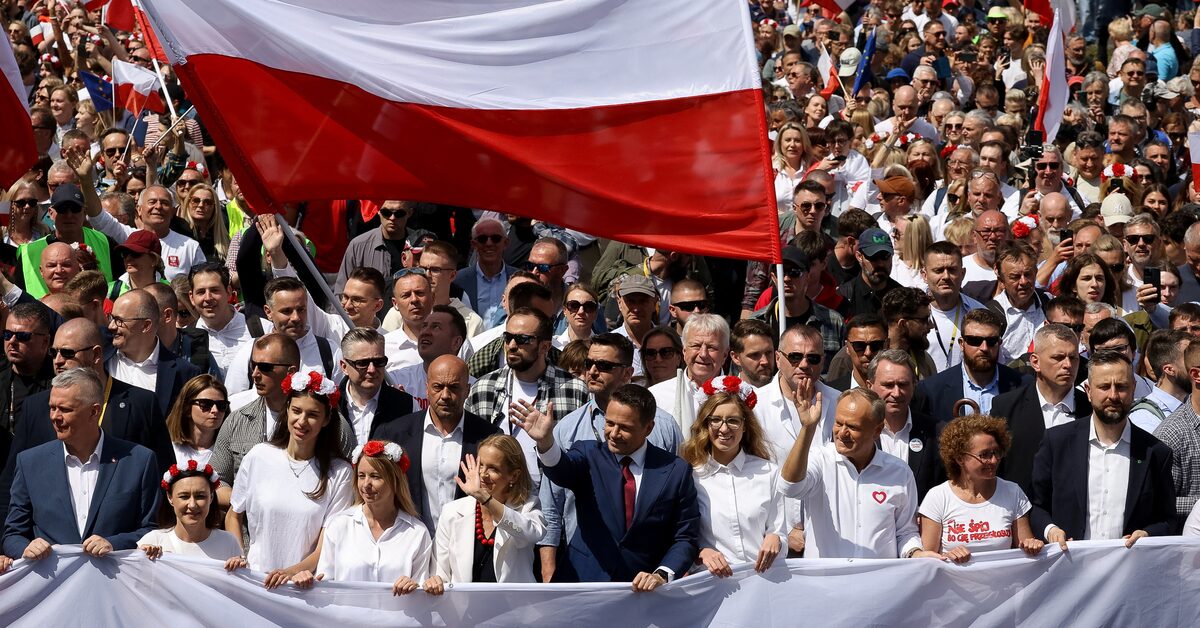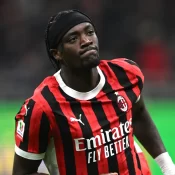
Poland’s Highlights of the Presidential Runoff Deep Differing Opinions Despite Growing Far-Right Power
Far-right voters are holding the sway in Poland’s presidential contest between a nationalist conservative and a pro-EU liberal.
Rafał Trzaskowski, a liberal and pro-European mayor of Warsaw, and Karol Nawrocki, a nationalist conservative, are the two candidates in a very impossible race for Poland’s presidency. Ahead of Sunday’s pivotal vote, polls are all but tied, making the outcome uncertain and the stakes high on a global scale.
Former US President Donald Trump and Hungarian Prime Minister Viktor Orbán have endorsed Nawrocki and hinted at the possibility of deeper military relations if Poles select him against liberal Warsaw Mayor Rafał Trzaskowski, attracting international attention to the contest.
Earlier this month, Trump invited Nawrocki to the White House and dispatched Homeland Security Secretary Kristi Noem to Poland for a conservative meeting, where she strongly endorsed the conservative pressure group CPAC.
In the event that Nawrocki prevailed, Noem even hinted at the possibility of deeper military connections between the US and Poland, implying that a Trzaskowski victory may endanger Poland’s security.
Viktor Orbán, the dictatorial prime minister of Hungary and a close ally of the Kremlin, also endorsed Nawrocki during a CPAC conference in Budapest on Thursday.
During a European conflict, Trzaskowski’s supporters contend that a pro-European leader would improve Poland’s reputation abroad.
Trump’s backing would significantly improve Poland’s security, according to Nawrocki’s supporters, who feel that only conservative governance can protect national sovereignty and traditional Christian values.
However, it is the candidate who will not be on the runoff ballot who could ultimately determine the outcome.
With almost 15% of the vote, 38-year-old Sławomir Mentzen, a far-right politician and beer maker from the central city of Torun, came in third place in the May 18 first round of voting. His followers, who are frequently young, anti-establishment, and extremely dubious of both Brussels and Poland’s political elite, have become the most sought-after group in the nation despite being eradicated.
The two surviving contenders have made a concerted effort to attract Mentzen and his supporters. Each guy traveled to Torun, a town in north-central Poland that is well-known for being the birthplace of astronomer Nicolaus Copernicus, in recent days to make an appearance on Mentzen’s YouTube channel. There, he has amassed a following by combining libertarian economics, nationalist rhetoric, and anti-EU venom.
His impact illustrates a larger change in Polish politics, where the extreme right—once viewed as a fringe force—is increasingly influencing the country’s agenda. Additionally, it is a part of a broader European trend in which hard-right parties are becoming more popular.
Poland, according to Piotr Buras, president of the European Council on Foreign Relations Warsaw office, is a part of a broader trend where voters are turning to populist movements in the face of rapid societal change. He also lists regional elements, though, such disenchantment with Tusk’s alliance.
On important topics, such as liberalizing the abortion law, which was a campaign pledge, that coalition—which crosses ideological boundaries—has had difficulty reaching a consensus. Andrzej Duda, the conservative president who is leaving office, has vetoed some of Tusk’s plans. In order to defeat Nawrocki, observers think the coalition’s supporters need to be extremely mobilized on Sunday.
In the first round, protest candidates received a large number of votes. Exit polls showed that of voters between the ages of 18 and 29, more over 35% supported Mentzen, while almost 20% favored a left-wing candidate, Adrian Zandberg.
Furthermore, more than 6% of the total votes were cast for Grzegorz Braun, an extreme right-wing antisemite.
Because they offer to restore a lost past, while the left promises a better future that many people fear is unachievable, Buras thinks right-wing protest candidates are more tempting today than those on the left.
“The world and society are changing at a rate that is significantly faster than it has ever been,” Buras stated.
“People are concerned and support candidates who claim that we can return to the heyday of the past.”
Since the first round, Mentzen, the Confederation party’s co-leader, has given both candidates a list of eight demands, including resistance to Ukraine joining NATO, defense of cash payments, no new taxes, and greater gun rights.
While on Mentzen’s show on June 22, Nawrocki signed on to all eight principles, including the contentious Ukraine position that contradicts his Law and Justice party’s long-standing support for Kyiv’s Western integration.
It took Trzaskowski two days to show up. He stated that he could accept certain ideas, such as fiscal restriction, but disagreed with others. In addition to vehemently supporting LGBTQ+ rights, he reiterated that Ukraine should eventually join NATO after the war is over, citing it as essential to Poland’s security.
The YouTube interviews have also taken center stage in the political discourse, highlighting the ways in which Mentzen, an outsider with a keen understanding of TikTok, has disrupted conventional campaigning.
Despite some tense moments, particularly regarding LGBTQ+ rights, Saturday’s exchange between Trzaskowski and Mentzen was respectful and productive.
The previous day’s customary televised discussion was mostly eclipsed by it. The campaign’s course appeared to remain unchanged despite the content of that discussion. Nawrocki briefly put something in his mouth, which he subsequently said was a tobacco pouch, and it was the main topic of conversation among Poles. Some have questioned whether he is capable of being president if he couldn’t survive a two-hour discussion without smoking.
In his own pub, Mentzen sat down for a beer with Trzaskowski and others after the occasionally acerbic discussions.
Also present was Foreign Minister Radek Sikorski, who took pictures of the unofficial meeting. He shared a video of the gathering on social media on Saturday night along with the caption, “For a Poland that unites, not divides.”
Commentators speculated as to whether the video, which went viral immediately, was a planned political maneuver or an unplanned gesture.
It was also another illustration, if there were any, of the gradual acceptance of far-right movements in Europe.
Mentzen found the time difficult as well. Despite his reputation for ridiculing the political establishment, the man seemed to be friendly with those in power. The movement he helped popularize had cracks, as critics on the far right pointed out.
On Wednesday afternoon, after days of holding out the prospect of an endorsement, Mentzen declared he would not extend one to either contender. He advised his supporters to cast their votes based on their conscience.
All Categories
Recent Posts
Tags
+13162306000
zoneyetu@yahoo.com



